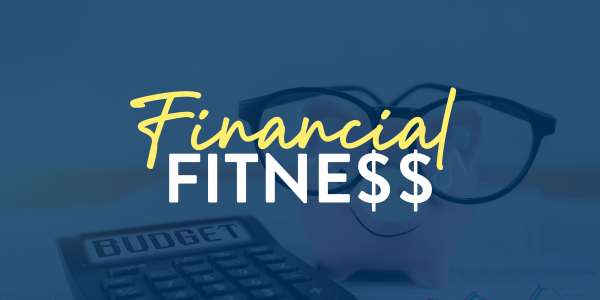
Being self-employed can be amazing! To many it sounds wonderful—you get to be your own boss, set your own hours, and work from anywhere! As many who are self-employed know, it’s not as simple as that (long days, making payroll, and no steady paycheck). There are many perks to entrepreneurship, including that invigorating feeling of creating a business, but some people worry that this path will make it difficult to qualify for big-ticket purchases like a home.
The good news is that self-employment is not necessarily a barrier to homeownership or refinancing. The W-2 crowd might have an easier way to document their income, but there are certainly options for the rest of us. Getting a mortgage when self-employed simply means the loan application process looks a little different.

So let’s jump into the nitty-gritty. After all, when you’re self-employed, time is one of your biggest assets!
Documents Required
You’re considered a self-employed borrower when you have 25% or more ownership in a business. If this is you, you’ll want to show a lender that your business is making enough money to cover your expenses—including housing—if you’re getting a mortgage when self-employed.
With this in mind, you’ll most likely be asked to supply:
- Your last two years of tax returns
- Three to six months of bank statements, including personal and business accounts
- Year-to-date profit and loss (P&L) statement
- Evidence of business existence
One thing to keep in mind during this pandemic season is that self-employed borrowers may be required to provide just a little bit more. Each business is different, yet any additional documentation and analysis of the business is simply to show that the business has sufficient liquidity and is financially capable of producing stable monthly income for you.
What Lenders Look For
Lenders certainly aren’t out to deny self-employed individuals the privilege of owning a home. They are, however, responsible for ensuring (to the best of their ability) that a borrower can afford the loan amount they’ve requested.
Therefore, getting a mortgage when self-employed means you have to show that your income is relatively stable, your business is financially strong, and can continue generating income in the future. For these reasons, lenders typically like to see at least a two-year history of uninterrupted self-employment.
And don’t worry if your income varies a little from month to month. Lenders will review your income on a wider timeframe, as verified through tax returns and P&L statements.
How Underwriters Calculate Self-Employed Income
Now that you’ve turned in your paperwork, let’s take a look at how mortgage underwriters make sense of all this. Though you may want them to, underwriters can’t simply glance at the gross income stated on your latest tax return and call it a day.
Underwriters will calculate your monthly income by completing a cash-flow analysis from the past two years’ worth of tax returns. Income will be considered from various earnings such as W-2 sources, interest and dividends, net business profits, royalties, K-1 earnings, and more. Some of your expenses may be reversed in this analysis, resulting in higher net profits than may be listed on the returns. There’s an equation to it all, but rest assured, underwriters are highly skilled at calculating your income properly for qualifying for that mortgage.
As a business owner, it’s understandable that you’d want to maximize your business deductions, which would result in a lower tax bill. However, that also results in lower adjusted income. For example, say your business earned $120,000 each year over the past two years . . . but you also wrote off $90,000 in expenses each time. That would take your income down to $60,000—or $2,500 per month (when divided by 24 months), which might not be sufficient to get you into the home you want.
Tax write-offs are part of the process (and benefit!) of being self-employed, and while it’s great to write off the absolute maximum possible, it’s also important to remember that writing off a substantial amount of your income could make qualifying a little more tricky.
Improve Your Chances of Getting Approved
Going easy on the write-offs and business deductions is the easiest way to improve your qualified income and, therefore, your odds of being approved if you’re getting a mortgage when self-employed. Being a diligent record keeper will also help exponentially when it’s time to gather, organize, and turn in the additional documents required for self-employed borrowers.
Aside from this, you can take many of the same steps that anybody would to improve their chances of qualifying for a mortgage.
These include:
- Improving your credit score
- Supplying a down payment of 20% or more
- Abstaining from any large purchases or incurring new debt
- Paying down the debt you have
- Adopting a side hustle that can earn you extra income
Other Things to Remember
We said it before, but it’s worth repeating: lenders like to see consistency in your income. This means your annual income should ideally increase, or at least remain the same, from year to year. If your business pulls in $80,000 one year, then $40,000 the next, that may warrant some explanation from you and your accountant as that downward trend can be concerning.
If you don’t qualify for your preferred loan amount on a conventional mortgage, all hope is not lost. Some lenders offer non-conforming loans that may be a good option for you. The interest rates on these products can be a bit higher than on a traditional mortgage, but the trade-off is that the guidelines are a little less strict. A trusted loan advisor can explain more about your alternatives and help you decide what’s right for you.
Getting a mortgage when self-employed is also made significantly easier if you work with a company like APM that is well-versed in entrepreneurs and the self-employed lifestyle. We see borrowers with unique income situations every day, and we know how to help you maximize your chances of success. Aligning with a proven loan advisor can make all the difference between achieving the outcome you want and heading back to the drawing board.
Go here to find an APM Loan Advisor near you and discuss your unique self-employed scenario and get on the path toward homeownership! We can’t wait to hear from you.








